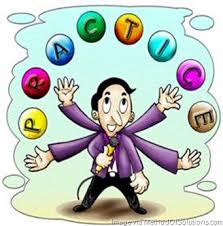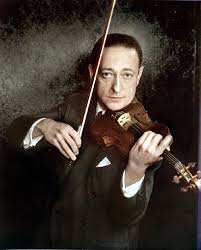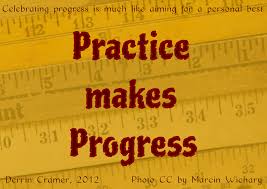I’ve often wondered: What does it take to become a master at the art of writing?
My latest read is a book by Mark Batterson called, The Circle Marker. While I don’t feel comfortable in recommending this book in general because the author handles the Bible too loosely for my taste, I’m gleaming some good stuff from it.
 In one chapter, Batterson is making a point that prayer takes work, lots of work. We need to pray hard, he says, like the persistent widow in Jesus’ parable. Batterson cites a study done by Anders Ericsson where he compared the success of musicians and their early practice habits. It doesn’t take much to guess that those who practiced more were the ones who succeed. Raw talent didn’t guarantee success as much as persistence.
In one chapter, Batterson is making a point that prayer takes work, lots of work. We need to pray hard, he says, like the persistent widow in Jesus’ parable. Batterson cites a study done by Anders Ericsson where he compared the success of musicians and their early practice habits. It doesn’t take much to guess that those who practiced more were the ones who succeed. Raw talent didn’t guarantee success as much as persistence.
In fact, a neurologist, Daniel Levitin, concluded that,
” . . . ten thousand hours of practice is required to achieve the level of mastery associated with being a world-class expert.”
Whether a basketball player, a musician or a fiction writer, Levitin says, that magical number of ten thousand comes up again and again.
Batterson makes the point that if this is true of fiction writers and basketball players, could it also be true of prayer warriors—that the more we pray, the better we will get at articulating our communication to the Almighty?
Being a writer, I digressed from the book and started thinking about the time I sink into being a writer. Lately I’ve been setting a goal of writing one hour a day. Yet, in order to attain that magical mark, you know how many years that would take?
Sigh. Thirty years. Even if I upped my writing to two hours a day, it would take fifteen years for me to truly master the art of fiction writing.
What is the best guarantee for writing success?
Practice. Lots of practice.
Yikes. I feel convicted. But I do find comfort in several caveats.
I’ve already been writing a number of years so I’m closer to that 10,000 hour mark than I would be if I were just starting.
Writing includes a lot of things: editing, reading, studying, and research. Yes, just like in piano performance, the most gain will be had from writing instead of studying about writing but anything is better than nothing.
Anything is better than nothing. What this study doesn’t say is something I know from piano playing. A few minutes of practice every day brings about greater success than random marathons. Jascha Heifetz nailed it:
“If I don’t practice one day, I know it, two days, the critics know it, three days, the public knows it.”
It applies to writing as well.
Anything counts. I often chafe that not everything I write makes it to print. Yet, many of the pieces I play on the piano don’t make it to performance level either. I well know that those practice pieces act as a foundation. When I do prepare a piece for performance, the work comes easier because I have that bedrock of experience in countless hours of scales and Hanon and Czerny exercises. The same with my writing. Some of my fiction might make it into my readers’ hands. Most never will get past my computer screen.
Even though no one may ever be blessed or benefited from a certain work, the time was not wasted. It was practice. Hours of practice. 10,000 hours and counting kind of practice.
Hmm. Next time I head to my office, do you think my husband and dog will understand if I tell them I need to practice my writing? Or I need to complete my 2,548th hour?
Whether it’s fiction writing, mastery at the piano, cooking, loving your spouse, or communicating with the Almighty, the principle is the same. Practice may not make you perfect, but it will certainly make you better. Better than if you did nothing at all.

Thank you for the encouragement! I have a desire to write my memoire, not so much about the years of chronic lyme undetected, but of God’s great love and hand of mercy in my life through it. A book of hope to the hopeless and all glory to our Great God. However, I am currently ill, have had yet another diagnosis that I have had to process for a few weeks. Being ill, my dreams of writing a book in 2016 seem to be dimming. I have a very large stack of journals from over the years and my memory of life’s events are vivid.
Can you give me any more encouragement than, just keep writing??
Oh Valorie, I’m full of compassion. I think you would be surprised at the number of writers who do work with the struggle of a physical disability. I have learned to keep my daily goals small, to break the job down into small parts. That’s not easy, especially when that stack of wonderful journals is staring you in the face! I often will set a timer, promising myself I will work just an hour a day. Sometimes it’s only 30 minutes–once in the morning, once in the afternoon. It doesn’t sound like much but it adds up and by the end of the week, you’ll feel wonderful at how much you’ve accomplished. Also, I’ve learned to admit my weakness to the Lord. Before each writing session, I ask for His strength. On particularly hard days, I’ll ask my team of prayer warriors to pray for me. Over and over, God has given me the strength to write in ways that knew were not possilbe. Most of all, as my agent says, “Never give up. Never, never, never give up!” Keep writing and keep in touch. I would love to celebrate with you when that book is complete.